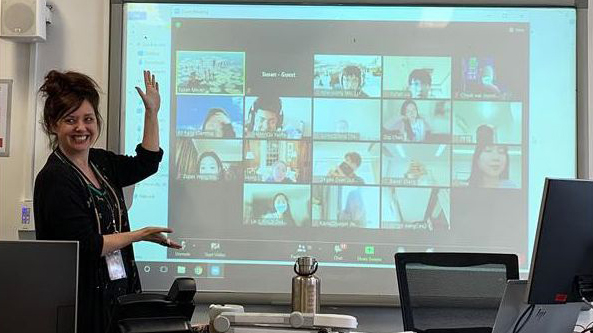Susan Meyer, RMIT English Worldwide teacher and participant in the trial, is enthusiastic about possibilities hybrid learning offers. “It’s exciting to see the students face to face…I definitely feel the hybrid environment has created a higher level of dynamism in the classroom.”
The biggest challenge facing teachers is learning to manage technology in the classroom while ensuring there is equity across both online and face-to-face student groups, but Susan has found that there are simple ways to alleviate this issue.
Susan said, “I make eye contact with online students via Zoom as much as I do with the students in front of me. The addition of a video camera to film the whole class has also been useful to show students studying online how we are working in the classroom.”
In a hybrid classroom, teachers need to employ different techniques to engage students. One student who participated in the trials commented, “I could feel the teacher's energy was much higher than before…”, as Susan managed the hybrid learning environment.
As early trials progress, the 16 student participants have so far responded very well to the new classroom dynamic. A classroom speaker enables all students’ voices to be heard and there has been lively dialogue between all the students – something that was less common with online only learning.
Trial coordinators have been reassured by the students’ positive feedback to date, however they are aware it can be a more arduous experience for face-to-face students in a classroom interacting with an online student group. Many students have expressed interest in 1-2 days per week of hybrid learning, although this is likely to increase as they become accustomed to this new way of learning.
While 2020 was a year of rapid adaptation for the education sector overall, this year the focus has turned to finding flexible, long-term solutions which allow teachers to deliver the highest standard of education to all students, no matter where they are in the world. Additionally, staff and students are learning valuable skills about remote learning and working in a modern world.




